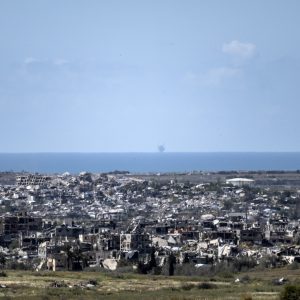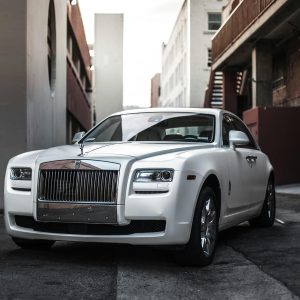Smaller parties take center stage as Pakistan waits for next government
KARACHI, Pakistan (AA) – As Pakistan’s three mainstream political forces rush to stitch together coalitions after the February 8 general elections, smaller parties find themselves playing an unexpected make-or-break role in the formation of the next government.
Several regional and religio-political parties with a few seats between them will be crucial in determining who gets to head the central and provincial governments.
These include the Muttahida Quami Movement – Pakistan (MQM-P), Jamiat Ulema-e-Islam (JUI), Jama’at e Islami (JI) and the Pakistan Muslim League – Quaid (PML-Q).
In the overall results, independent candidates, mostly backed by jailed former Prime Minister Imran Khan’s Pakistan Tehreek-e-Insaf (PTI) party, won the majority of seats – 101 – in the National Assembly, the lower house of Parliament.
However, they do not have the required numbers to form a government on their own.
The two other main parties, ex-Premier Nawaz Sharif’s Pakistan Muslim League – Nawaz (PML-N) and Bilawal Bhutto Zardari’s Pakistan People’s Party (PPP) have started talks for a possible coalition government.
They won 75 and 54 out of the 266 direct National Assembly seats, respectively.
The National Assembly has a total of 336 seats, with 60 reserved for women and 10 for religious minorities.
These are proportionately distributed among parties according to their election performance. Any party that wants its leader as prime minister will need 169 votes in the house.
To form the central government, the PML-N is trying to woo the MQM-P, a regional party mainly based in the country’s commercial capital Karachi, which has 17 lawmakers in the new parliament.
JUI, a mainstream religiopolitical party and PML-Q, a splinter faction of PML-N, have won only a handful of seats in the National Assembly, but their votes will still be decisive for the formation of governments, mainly in the southwestern Balochistan and Pakistan’s largest Punjab province.
However, in southern Sindh and northwestern Khyber Pakhtunkhwa (KP) provinces, the PPP and the PTI-backed independents are in a comfortable position to form the provincial governments for a fourth and third consecutive term, respectively.
In KP, PTI affiliates have won a two-thirds majority. However, they need to join a party to form the government.
For that, their only choice seems to be Jamaat-e-Islami (JI), a mainstream religiopolitical party which has won two seats in the KP assembly.
The PTI and JI remained coalition partners in KP from 2013 to 2018.
– Independents emerge as ‘game-changers’ –
The PTI remains adamant that the candidates it supported will remain loyal and not join other parties.
However, other political forces are courting these individuals, confident that they can make them switch their allegiance.
In reality, independents can either join a party favored by Khan or choose to support his opponents. This would also increase the number of reserved seats for the respective parties.
In any case, the independents can be counted as game-changers, especially the “Cheena Group,” a conglomerate of so-called “electables,” who always contest independently from different constituencies in Punjab and later join the central and provincial governments.
This time too, these electables have managed to clinch eight National Assembly and over two dozen provincial assembly seats.
Six independent National Assembly members, including one PTI-backed individual, and several newly elected Punjab Assembly lawmakers have already joined the PML-N, boosting its position in the two houses.









